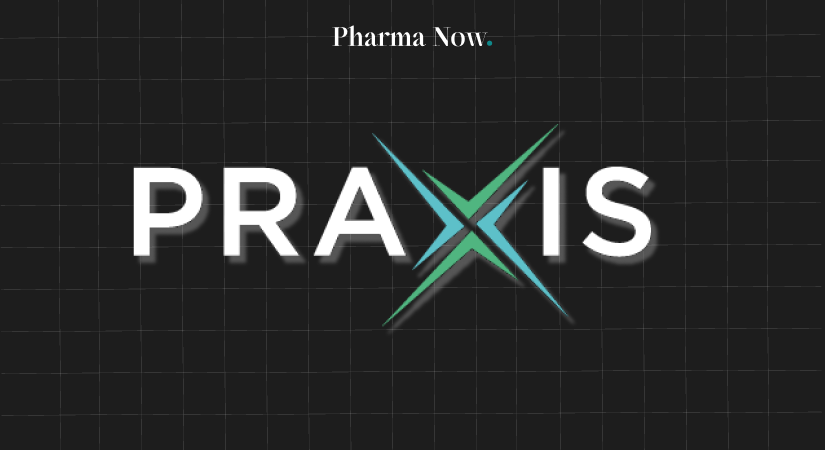Praxis Precision Medicines Reports Positive Phase 3 Results For Ulixacaltamide In Essential Tremor
Praxis Precision Medicines reports positive Phase 3 results for ulixacaltamide in essential tremor, showing strong efficacy and functional improvement.
Breaking News
Oct 17, 2025
Vaibhavi M.

Praxis Precision Medicines, Inc., a clinical-stage biotech company developing therapies for central nervous system (CNS) disorders, announced positive topline Phase 3 results from its Essential3 program evaluating ulixacaltamide in patients with essential tremor (ET). The program consisted of two concurrently conducted studies in the U.S., both leveraging a decentralized trial design to improve accessibility and data consistency.
“To all the patients living with ET, I am thrilled with the results of the Essential3 Program. All of us at Praxis will be forever indebted to the bravery you have demonstrated participating in the program, in the face of such a debilitating condition,” said Marcio Souza, president and chief executive officer. “Patients in Essential3 had been living with essential tremor for an average of 30 years, with worsening symptoms and no effective treatment options. In just 15 months of recruitment, we had over 200,000 people interested in participating in this study, which is a powerful reflection of the large unmet need for a therapy like ulixacaltamide. We look forward to the opportunity to have a pre-NDA meeting with the FDA soon to discuss the potential NDA.”
“As a lead investigator in the Essential3 program, I am extremely encouraged by these results, showing clinically meaningful improvements in tremor control and daily function for adults with ET. These results give hope that ulixacaltamide could be widely used in people suffering from this condition. These findings represent important progress for the ET community and underscore the value of modern, patient-centered trial execution for advancement of neurological science,” said Alexander Shtilbans, MD, PhD, FAAN, Hospital for Special Surgery, Department of Neurology, Weill Cornell Medicine, and co-lead investigator of the E3 program.
Study 1, a double-blind, placebo-controlled trial, enrolled 473 participants randomized 1:1 to receive either ulixacaltamide or placebo for 12 weeks, with the primary endpoint being the change from baseline in mADL11 (modified Activities of Daily Living scale) at Week 8. Study 2, a randomized withdrawal design, included 238 patients who first received ulixacaltamide for 8 weeks. Responders—defined as those showing at least a 3-point improvement on mADL11—were re-randomized to either continue ulixacaltamide or switch to placebo for 4 additional weeks to assess maintenance of effect.
“This is incredibly exciting news, for the first time we have a medication designed specifically for our ET patients. As a clinical researcher and movement disorder specialist, it is very rewarding to see such positive results with the potential to truly change lives. Ulixacaltamide represents more than data on a chart - it is a real opportunity to help people regain their independence and improve their daily functioning in meaningful ways,” said Salima Brillman, MD, Founder, Parkinson's Disease and Movement Disorders Center of Silicon Valley, co-lead investigator of the E3 program.
“For years, our community has waited for hope grounded in data. The positive results of Essential3 mark an extraordinary step forward bringing ulixacaltamide, a much-needed therapy to the under-served ET community. We are deeply grateful to Praxis, the investigators and the trial patients for their dedication to advancing science,” said Patrick McCartney, Executive Director, International Essential Tremor Foundation.
Two pre-specified hypotheses further evaluated combined outcomes across both studies, comparing different ulixacaltamide and placebo arms using mADL11 at Week 8. Secondary endpoints assessed overall disease improvement rate, Patient Global Impression of Change (PGI-C), and Clinical Global Impression of Severity (CGI-S). The results confirmed that ulixacaltamide significantly improved functional ability and maintained symptom control in essential tremor patients, reinforcing its potential as a first-in-class precision therapy for CNS disorders driven by neuronal imbalance.
“The trial’s innovative home-based design, with participants across all 50 states completing visits from their homes, brings real-world results to the ET community. The ulixacaltamide Phase 3 studies allowed us to engage a broad and representative ET population that truly reflects the diversity of those living with this condition, including people who might not have participated in clinical research otherwise. These positive results truly reflect the patient experience and highlight what is most meaningful to those living with essential tremor,” said Jill Farmer, DO, MPH, FCPP, DipABLM, BoroNeuro, co-lead investigator of the E3 program.
